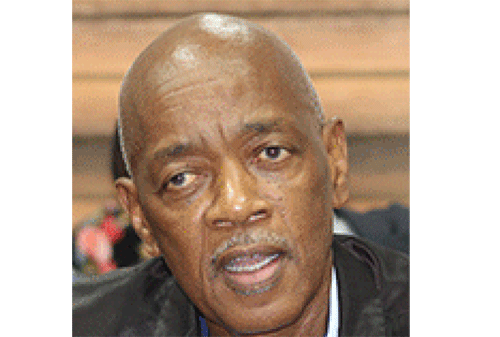Gerson Uaripi Tjihenuna
It has been 33 years since Namibia gained independence in 1990 and 29 years since South Africa transited to democratic majority rule in 1994. The two countries have strong historical ties and part of that history is Robben Island where both South African and Namibian political prisoners were held during the dark days of Apartheid; hence the title of this opinion piece.
I recently visited Robben Island on 1 December 2023. As a former youth activist in the seventies, that visit evoked deep emotions in me. The gentleman who took us around the prison facility, a certain Sipho, had been a political prisoner at Robben Island himself. He was thus able to narrate the magnitude of the suffering they had gone through from the perspective of a lived experience; a very moving narration indeed.
However, it was the visit to the D Section of the prison where most Namibians, with the exception of Toivo Ya Toivo, had been held, that touched me the most. In the middle of the hall stands erected a big red board with all the names of the Namibian political prisoners who had done time at Robben Island and other prisons in Apartheid South Africa. As I was going through those names, I came across names of people that I knew personally (some already late and some still alive). The name of Nashilongo Taapopi, a former classmate of mine at the Augustineum High School and former fellow youth activist in the seventies, who had been sent to prison at the tender age of 18, in particular, caught my attention. Upon his release from prison in 1976 he continued with his activism inside the country and he is believed to have died in the 1978 Cassinga massacre, shortly after he had left the country.
Although this was my second visit to Robben Island, I think this time around, the mere thought that I could as well have ended up there, weighed heavily on me. At the risk of being misunderstood that I am blowing my own trumpet, I honestly think that as a former activist who hosted former underground PLAN fighters on a few occasions, the chances of being arrested and sent to Robben Island were real.
One of the first people that I called after my visit to Robben Island was none other than Ben Ulenga, a Robben Island “graduate” and a most refined nationalist in his own right. I encouraged him to write about the story of his life and he assured me that he was working on that.
As the tour guide took us on a bus around this island that is so rich in history, we stopped at the famous Sobukwe House. This is the house where Robert Mangaliso Sobukwe was held from 1963 to 1969, far from the other prisoners. Sobukwe was initially part of the ANC Youth League leadership but he and some of his comrades broke away from the ANC to create the Pan Africanist Congress (PAC) in 1959.
The PAC objected to the ANC’s lodestar document, the Freedom Charter, that had been adopted at Kliptown in 1955. The PAC, in particular, had serious issues with the ANC’s multiracialism as captured in the Freedom Charter. They felt such an approach fell short of empowering the Africans to acquire complete political command of South Africa.
The PAC played the leading role in the 1960 anti-pass campaign that led to the Sharpeville massacre where 69 unarmed Africans were shot dead by the Apartheid security forces. This led to Sobukwe’s arrest and he was, for the most part, held in solitary confinement. Given his magnetic charisma, his eloquence and his exceptional leadership skills, the Apartheid state was so much afraid of Sobukwe, that he was declared public enemy number one. The State went to the extent of putting an amendment in the law that came to be known as the Sobukwe Clause. That clause, that was never applied to any other political prisoner except Sobukwe, implied that the Minister of Justice could extend the sentence of any political prisoner at will.
In 2023, South Africa celebrates 45 years since the death of anti-apartheid icon, Robert Sobukwe in 1978 and 60 years since he was banished to Robben Island as a political prisoner in 1963. Therefore, earlier this year, the Robben Island Museum Council declared 2023 as the Year of Robert Sobukwe.
As fate would have it, 5 December marks Sobukwe’s birth day (he was born in 1924) and it was, ironically, also the day on which Mandela died in 2013. However, it seems that, to all intents and purposes, Sobukwe’s legacy has been eclipsed by the Madiba brand. I am not a South African and it is therefore not my space to weigh Sobukwe’s legacy against that of Mandela. It does, however, not matter how one looks at it, one thing is certain, the Apartheid State certainly feared Sobukwe more than they did Mandela.
The Apartheid State went to the extent of declaring Sobukwe public enemy number one, enacting the Sobukwe Clause and keeping him in a house far away from the other prisoners. Need I say more to prove that he was the most feared political opponent of the Apartheid State?
The nadir of human suffering and the noble heroism of the former political prisoners as symbolised by Robben Island, is perhaps best captured in the words of Ahmed Kathrada (one of the former Robben Island political prisoners) a few years after his release from prison in 1990. He said: “We will not want Robben Island to be a monument of our hardship and suffering. We would want it to be a triumph of the human spirit against the forces of evil…”
*Gerson Uaripi Tjihenuna is a retired civil servant who is currently serving as a Commissioner of Elections. The views expressed here are his and not those of ECN.


